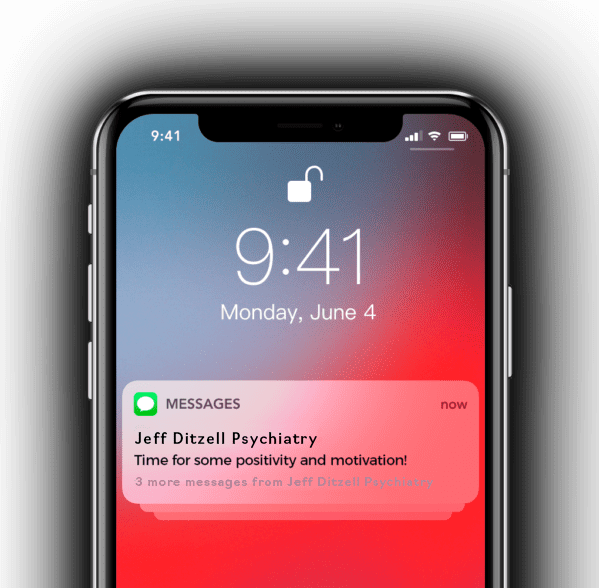Home / Mental Health Journal / How to Be Supportive of a Loved One’s Mental Illness

There are numerous ways to cope with mental health issues these days. Because the age of the internet is here, there are more resources available in order to understand the importance of our psychological wellbeing. And while dealing with mental illness is not an easy thing to go through. It’s just as hard to watch someone you love struggle with it. It can be confusing to watch a loved one change because of something you cannot fully relate to. A general feeling of powerlessness takes over in difficult situations like that. But, because they are either a close friend or your family: you want to help. And help is not a clear set of instructions you can follow because every person is unique and will cope with their mental illness differently. When it comes to helping, sometimes small gestures can go a long way.
So, think of a loved one. Think of their struggle. Think of what you would give to not see them go through a difficult time. And above all, keep an open mind when receiving advice on the help you can offer, because there are simple steps you can take towards helping a person you care about:
Accept there is nothing you can do to make them better
This is the first step towards helping someone with a mental illness and the hardest one because of its irony. You can help them by accepting that you cannot help them, not in the way a professional could. It is not your place to fix the condition they have. To turn their mood around, and to lift their spirits. It is an immense responsibility and a weight on your shoulders that you are not equipped to carry. All the while you will make them feel like they owe it to you to improve, because of all the effort you put in. Instead; encourage them to talk to a trained professional like a therapist or psychiatrist. Explain how you are there to listen, but let them know that you do not understand enough to offer the kind of specialized advice they need.
Read up on their mental illness
Once your friend or a family member has received a possible diagnosis, it’s time to research what their condition actually means. Even with something as widespread as depression or anxiety, it is very possible that you do not know all the symptoms. With complex mental health conditions such as bipolar disorder, PTSD, attention-deficit/hyperactivity disorder (ADHD), and so on, getting the sense of what types of symptoms you should be looking for, instead of vaguely guessing, will prove useful. Your friend or family member will appreciate the time you spent researching what it is like to live with such a burden.
Sympathize, don’t empathize
When you sympathize with a loved one, you express support and feel sorry that they must go through difficult times. When you empathize, you put yourself in their shoes and try to feel the same thing they are feeling. But what most people do not realize is how selfish empathy is at its core. You take someone’s problems and find a way to turn that struggle towards what you feel or would feel if ever put in that situation. However, sometimes that is not what people need. Their mental illness is not meant to be something you can relate to, nor is it a tool for you to make the conversation about yourself. Even if symptoms of their conditions sound common, they do not need to hear that. They need you to show acceptance, and to listen to their story without inserting yourself in it.
Don’t tell them they seem fine
This one is a common mistake. If someone discovers they have a mental illness, people can sometimes feel the impulse to be in denial, to state that it is impossible for them to have a disorder because they do not seem to be playing the part. But mentally ill people do not always look depressed or manic or downright psychotic; their everyday life is not defined by this aspect of the stigma that surrounds it. A frequent coping mechanism is to hide their issues to try to feel normal, but no two individuals have the exact same patterns in their mental illness, since everyone deals with it in various ways. So instead of being surprised when they mention their mental illness or reassuring them that they will be fine from now on, listen to what they have to say. Listen and understand that a mental condition is a limp, not a broken leg.
Learn their love language
The five types of love languages are the ways people express love without really saying ‘˜I love you’, or the way they look for love in small gestures. In this category, there are the words of affirmation (expressing love through kind, supportive words), quality time (showing love through the amount of time spent together), receiving gifts (connecting love to the beauty of a significant present), and physical touch (feeling love through the power of touch). Every person communicates love in their own way, and people who are struggling with their mental health can also struggle with expressing their feelings in a clear manner. But showing you care in their time of need is a crucial step, and in order to do it, you need to show it in a way in which you are sure they will feel it. So, find out which love language they speak. Find out whether they will feel your support better through a hug or through an hour spent together sharing comfortable silence.
There can be an endless set of steps you can follow in the journey of being someone your friend or family member can rely on when it comes to their mental health. None of them work unless there is communication and you are willing to be considerate, perceptive, thoughtful, and caring. You will not always know how to help them, won’t always know the right thing to say or do, because there is no way of imagining what it is like to walk a mile in their shoes. What all the steps from above are trying to convey in one simple message is this: sometimes trying can be enough.
If you or someone you know is struggling with mental illness, and need someone to talk to give us a call or make an appointment. At Dr. Ditzell Psychiatry we strive to provide the best care for mental health services in New York City. We also provide telepsychiatry services to allow our patients to be able to talk to us where they feel most comfortable. We are here when you need us.

Dr. Jeff Ditzell, D.O. is the lead psychiatrist at Dr. Ditzell Psychiatry with over 25 years experience treating people for Anxiety, Depression, OCD, PTSD, Adult ADHD, Bipolar Disorder, using ketamine treatments, psychotherapy, and so much more.
 Hello,
I'm Dr. D!
Hello,
I'm Dr. D!
At my psychiatry practice in New York Cty, we're focused on giving you a 360 approach to mental health. It's time we end the stigma on mental health.

Your Modern Day Mental Health Podcast
Each week we'll explore all things Mental Health, Mindset, Fitness, and Psychiatry!
tell me more






